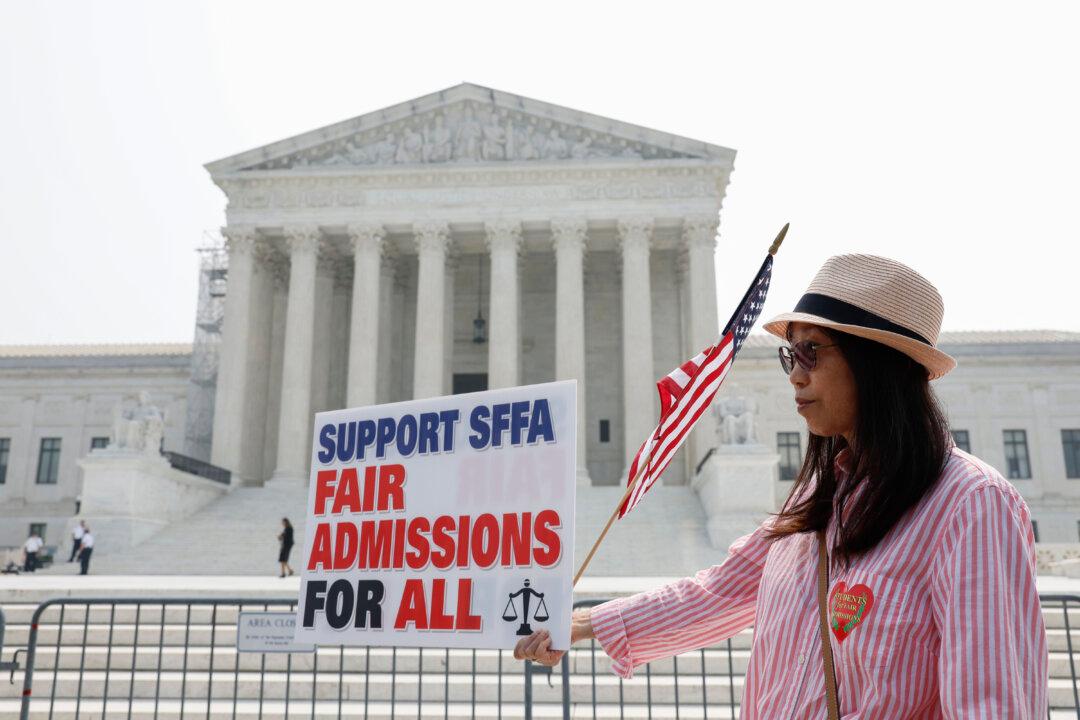Commentary
The Supreme Court’s decision striking down racial preferences in student admissions at Harvard and the University of North Carolina is proving to be highly popular with American voters.

The Supreme Court’s decision striking down racial preferences in student admissions at Harvard and the University of North Carolina is proving to be highly popular with American voters.